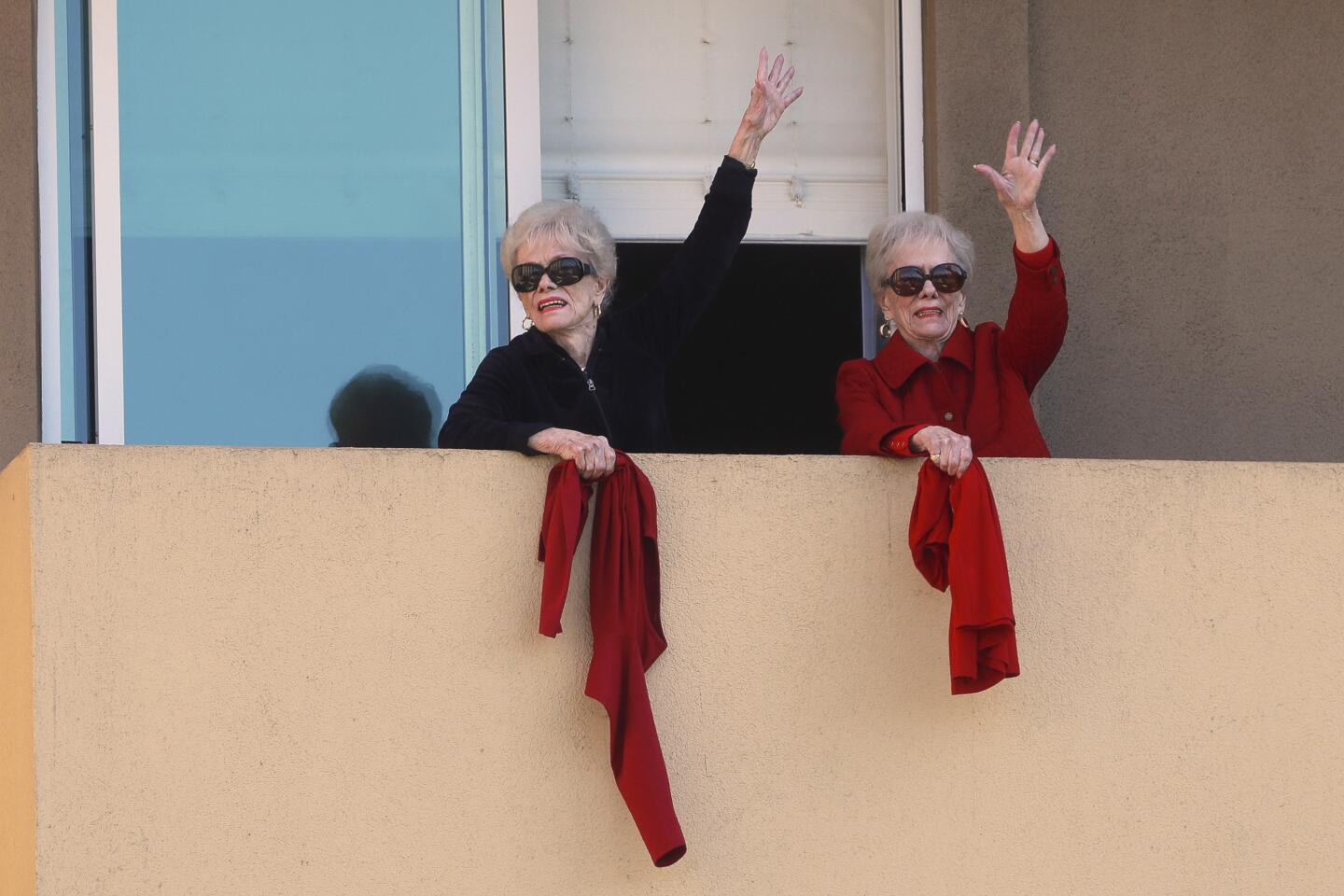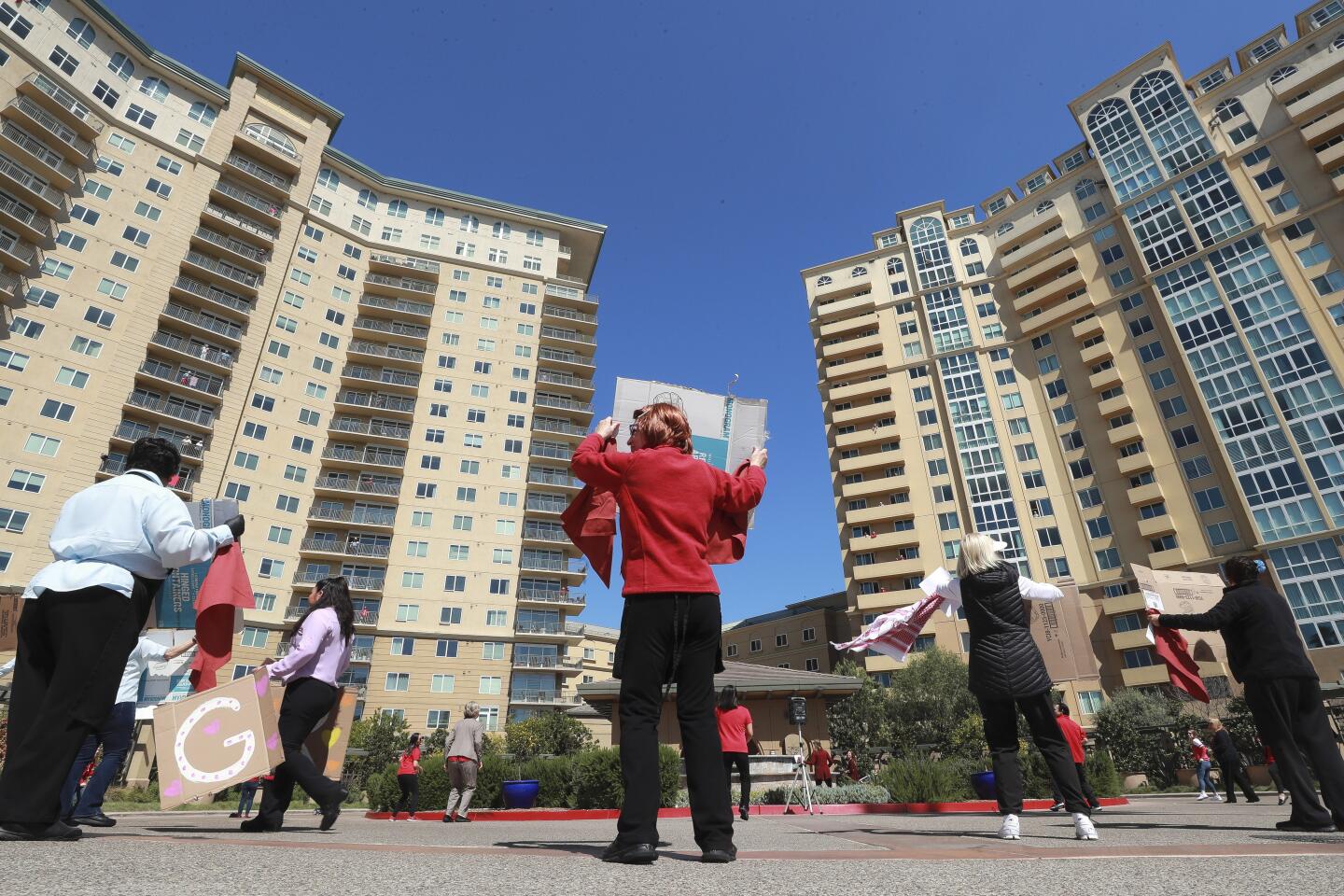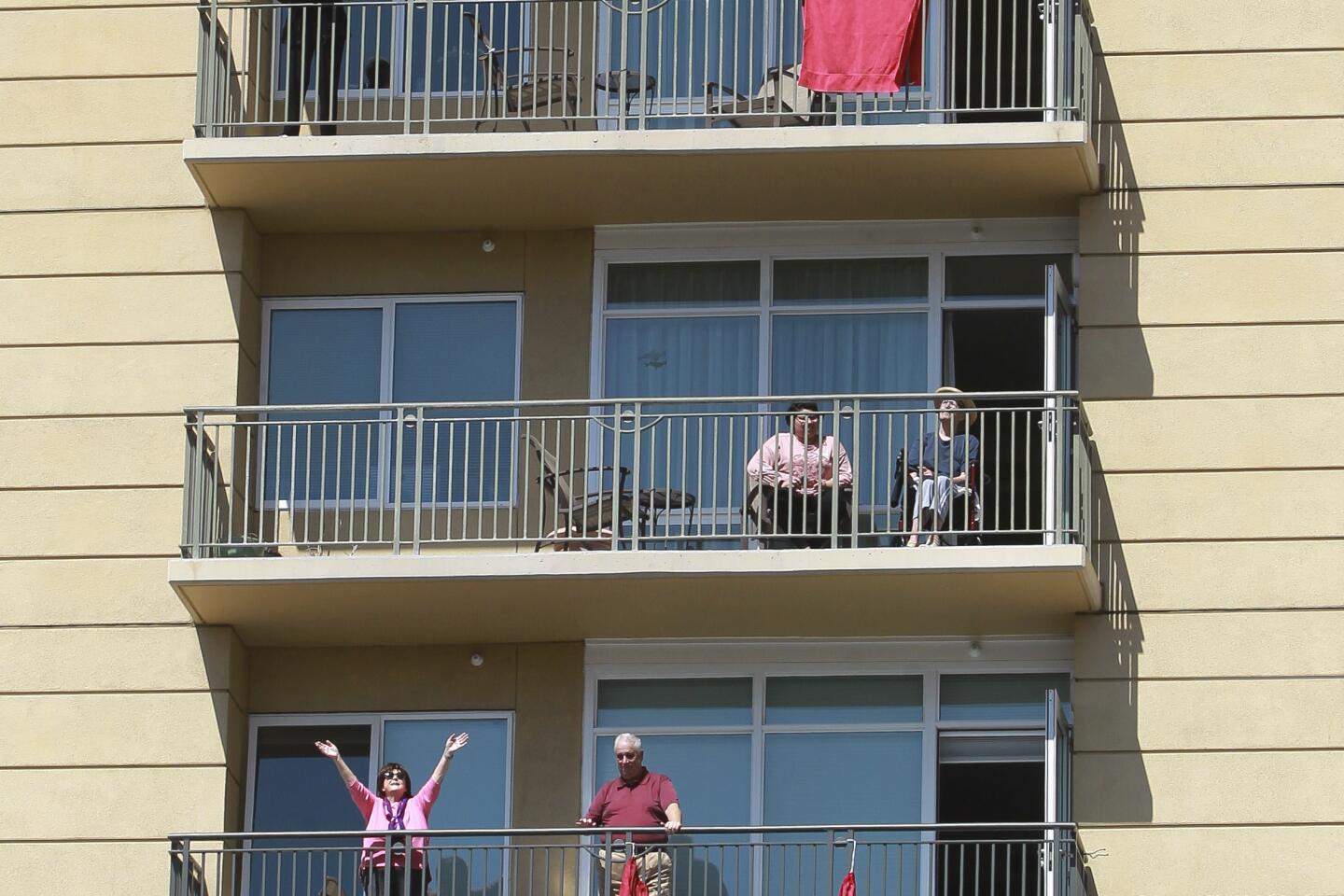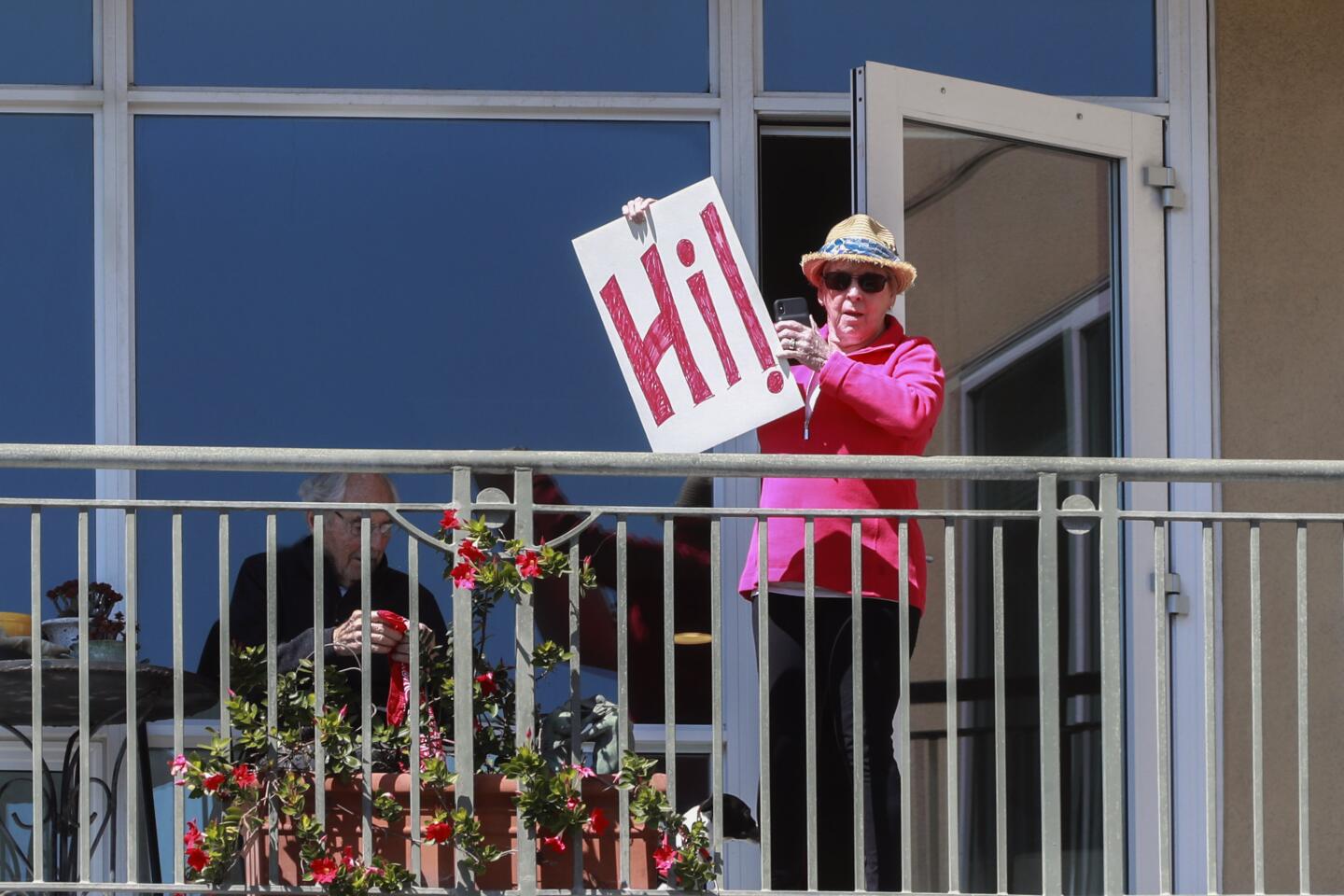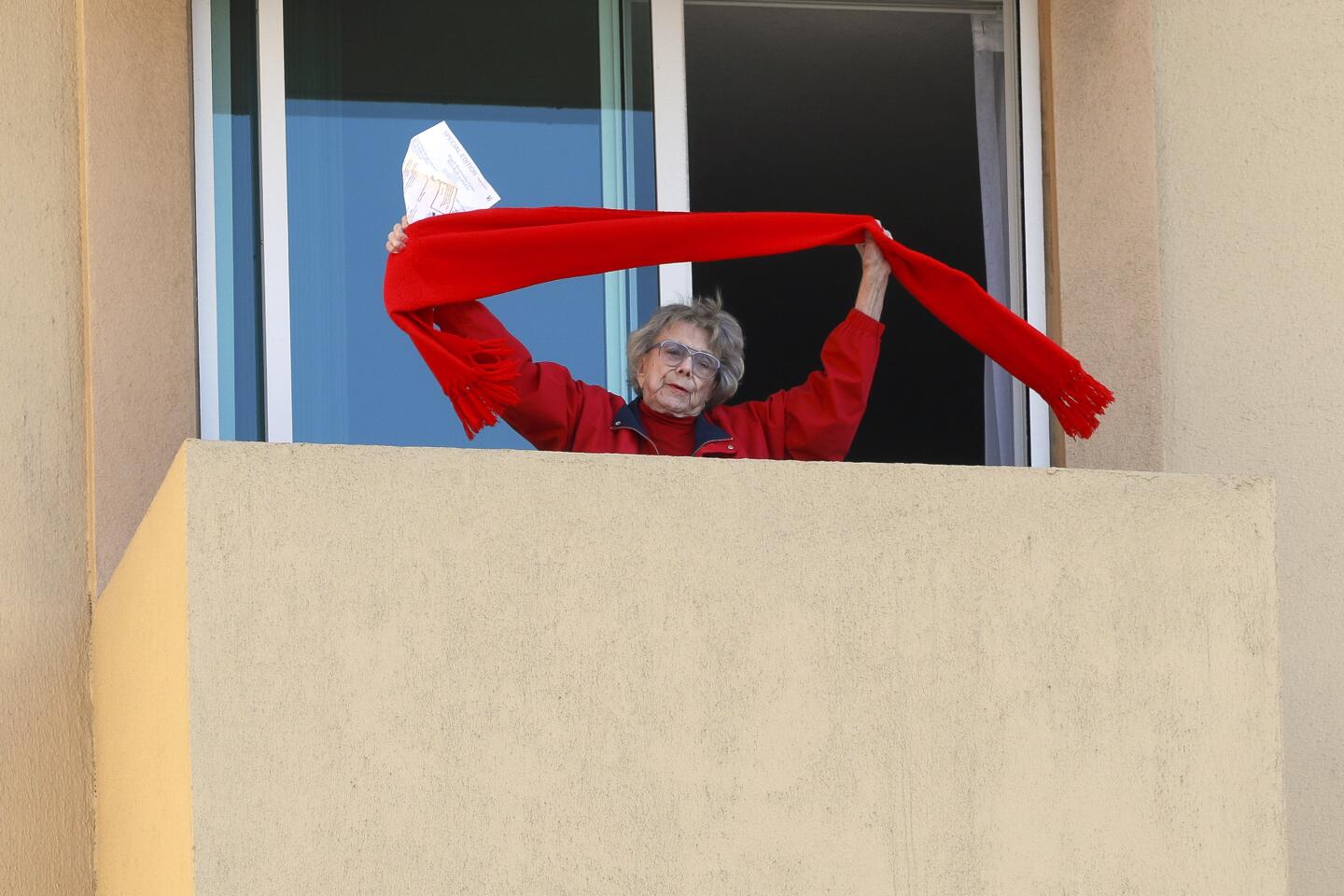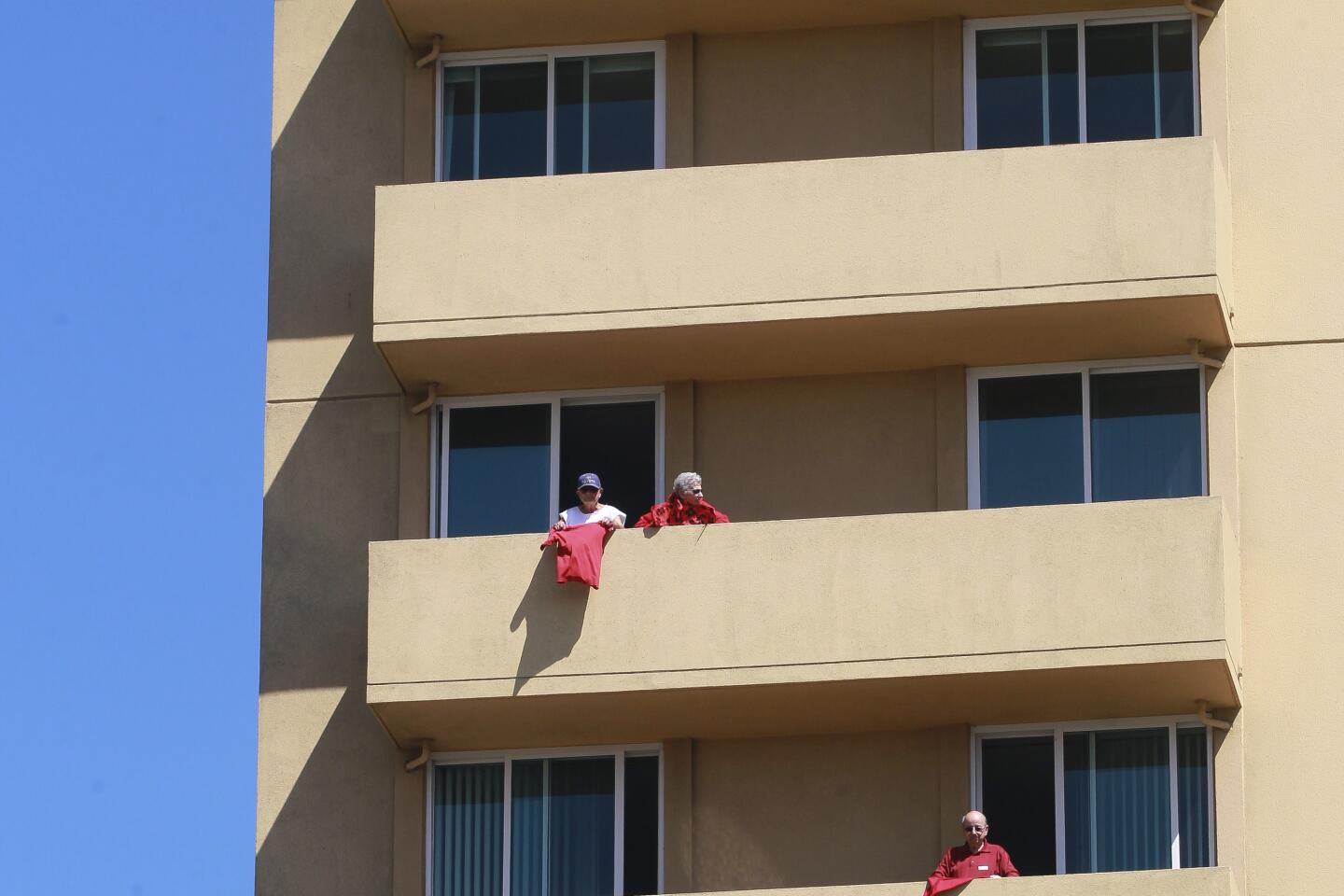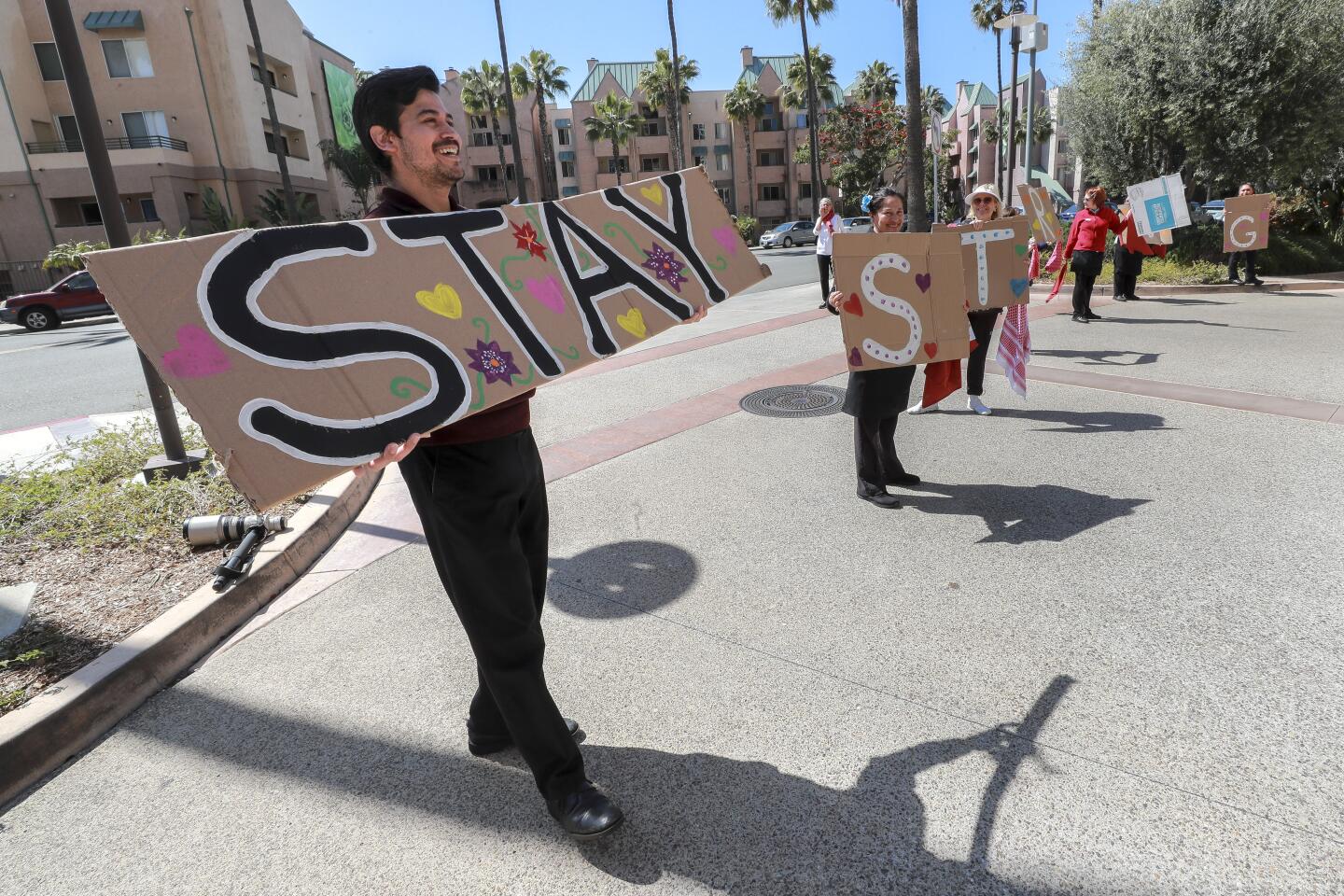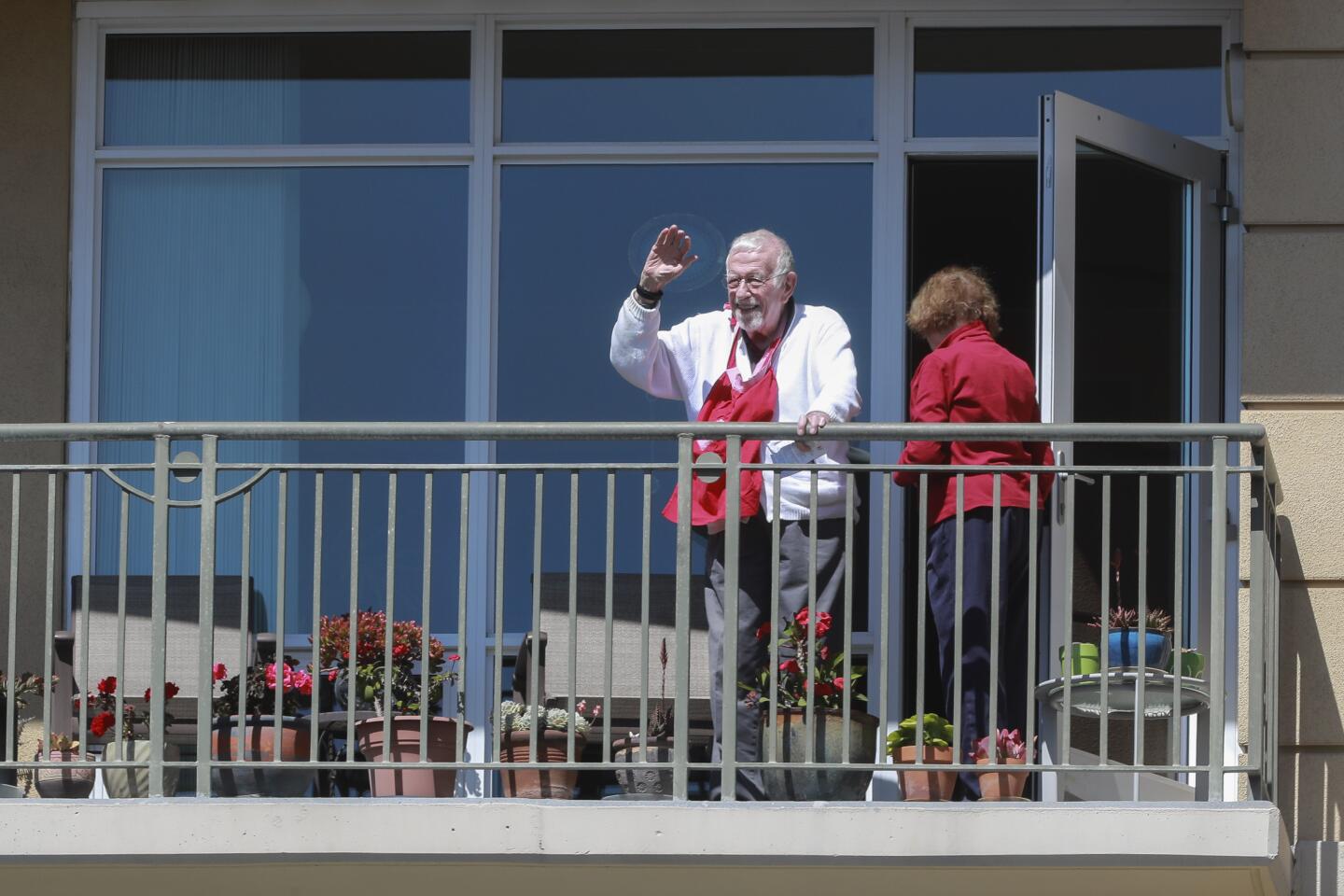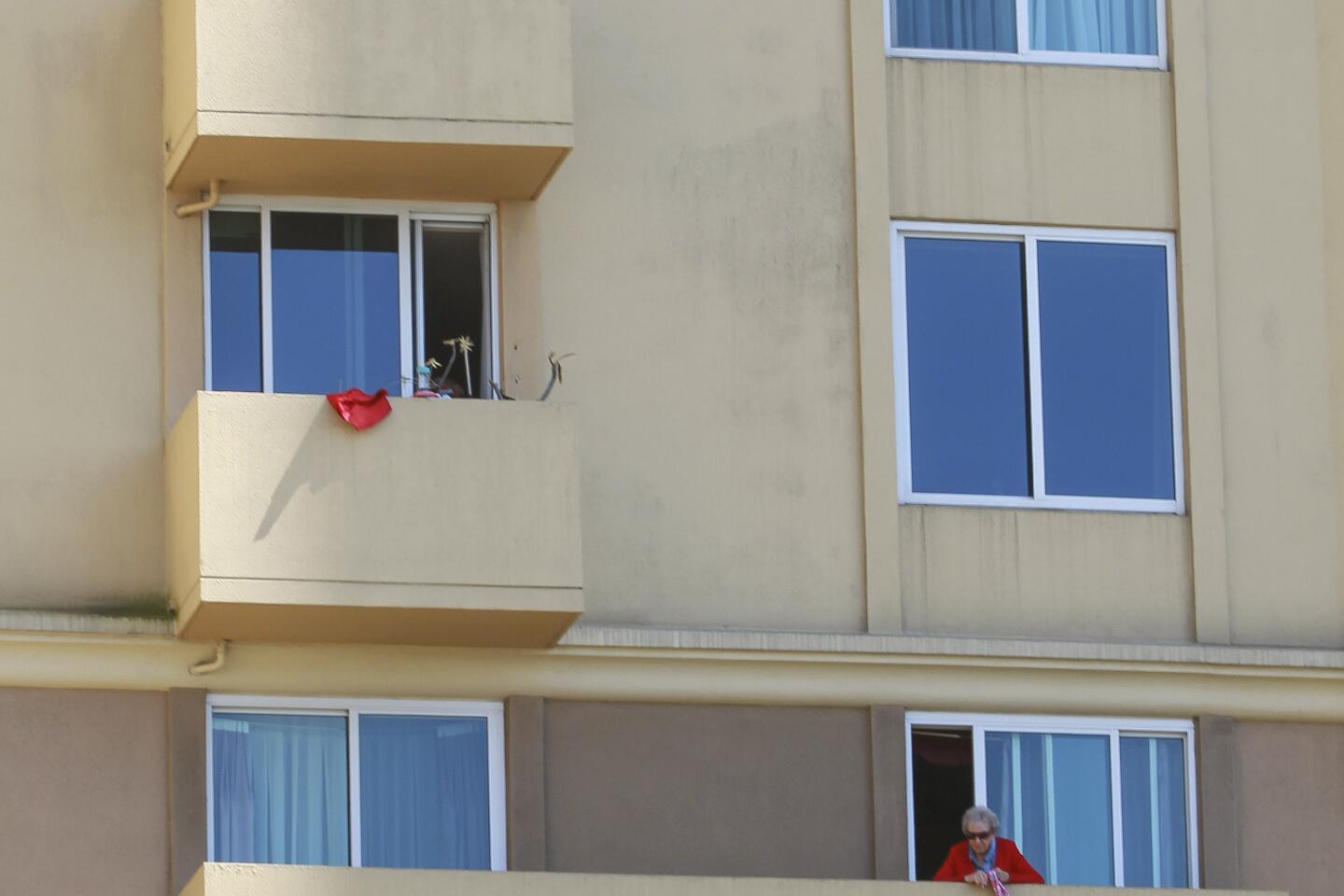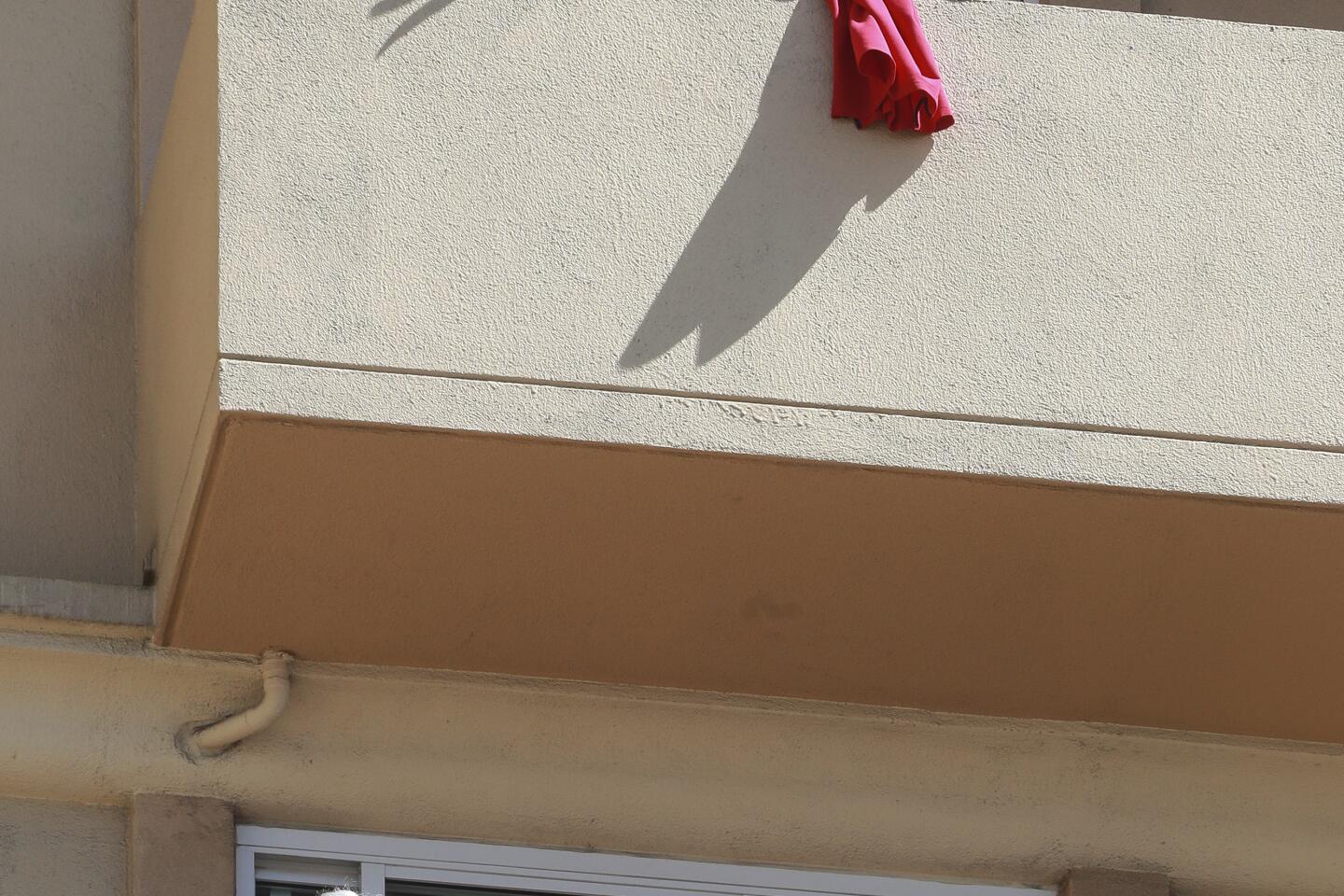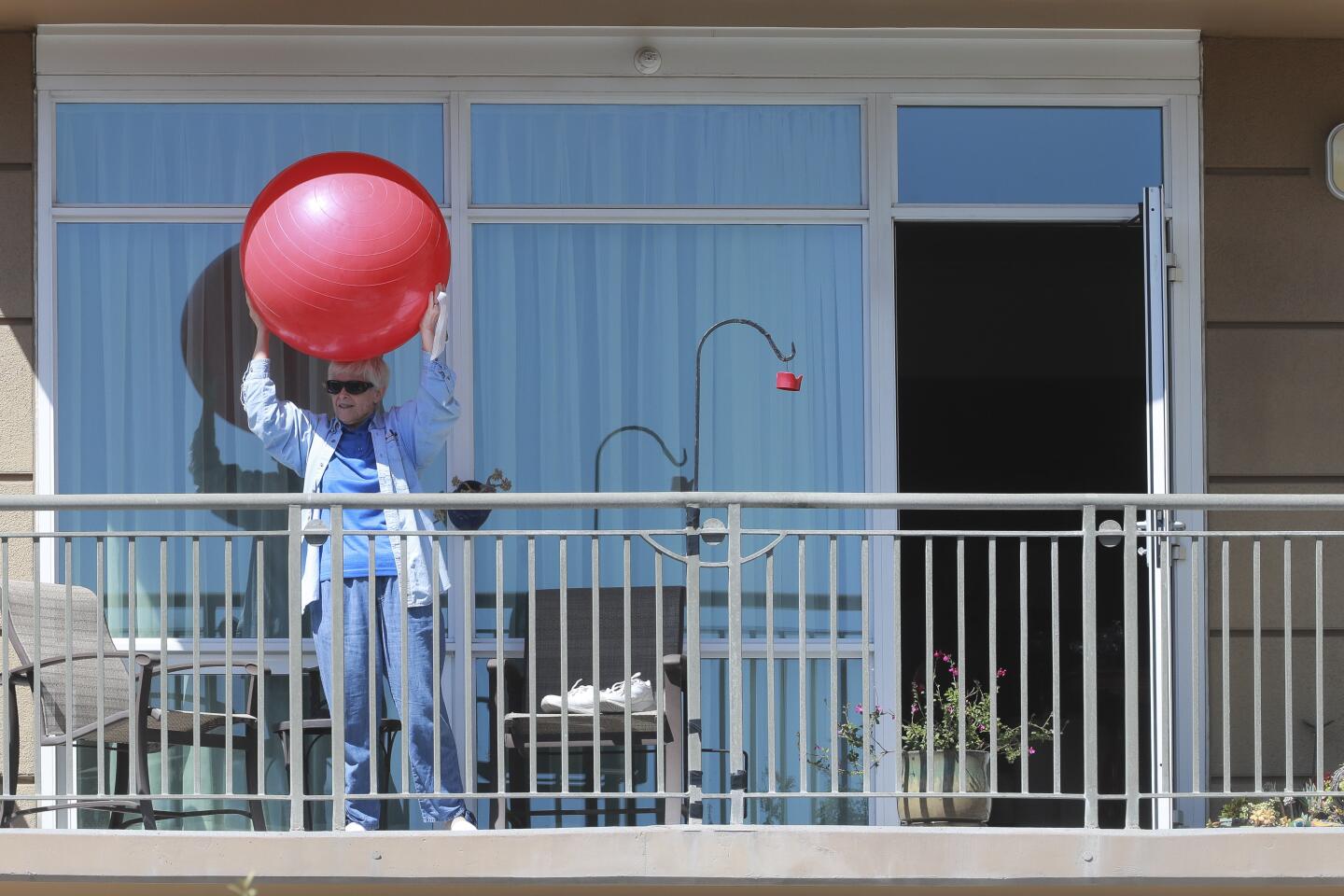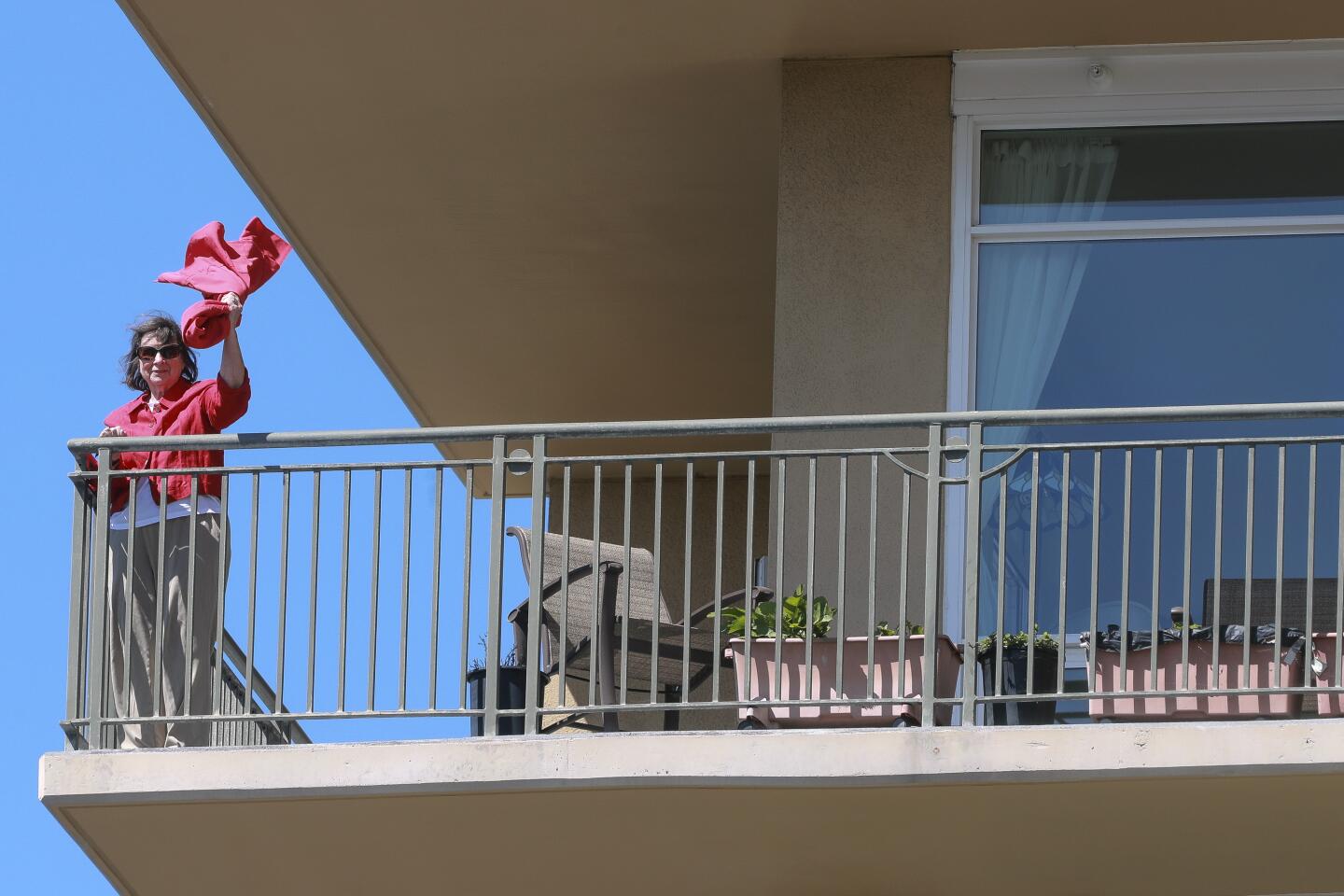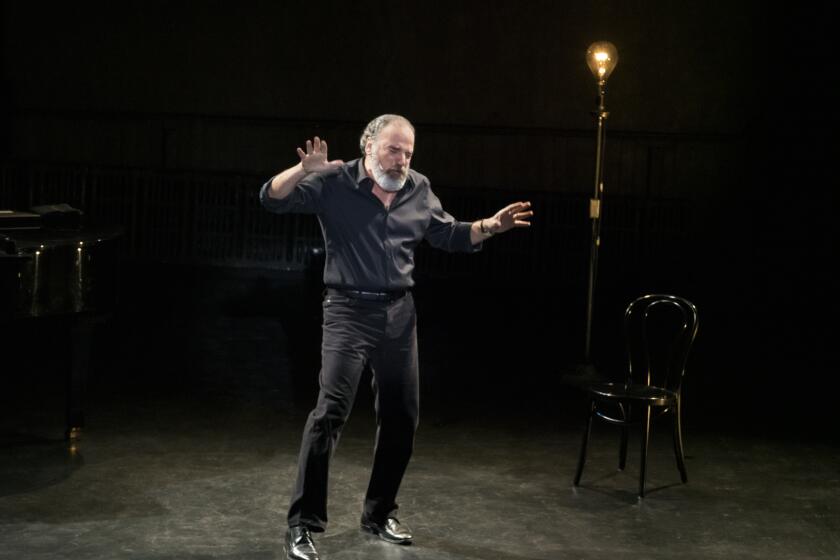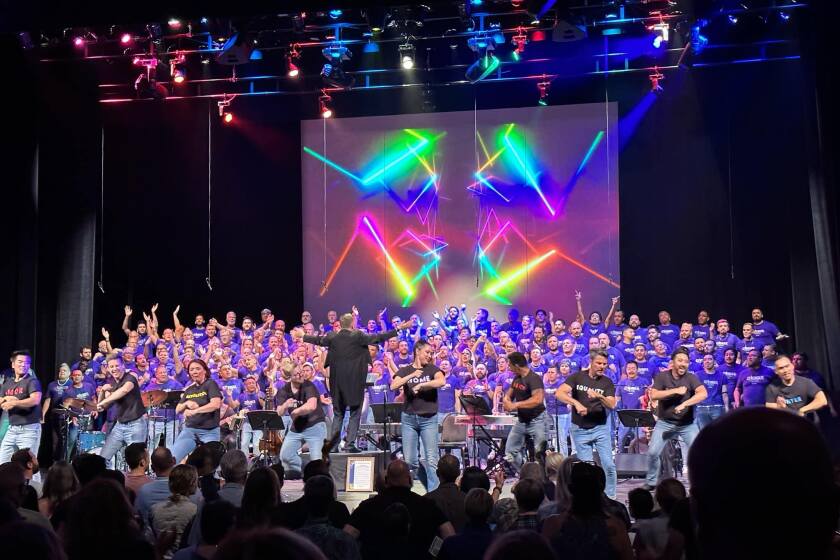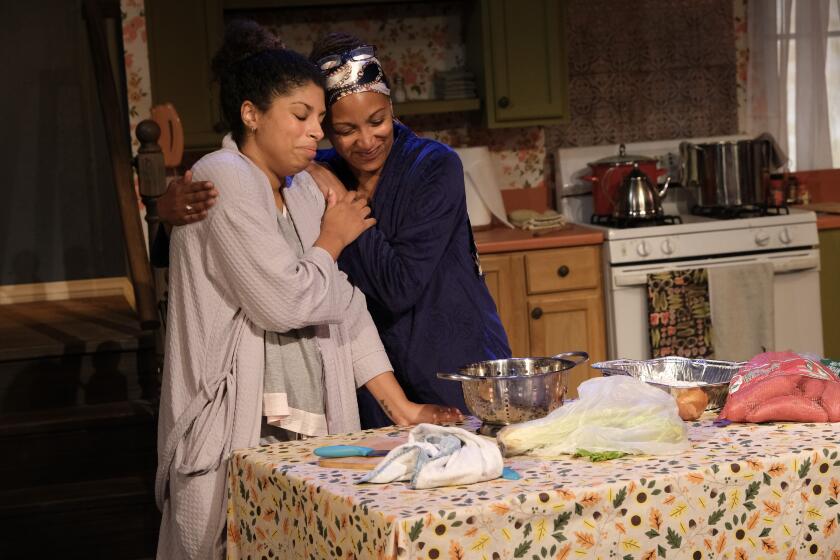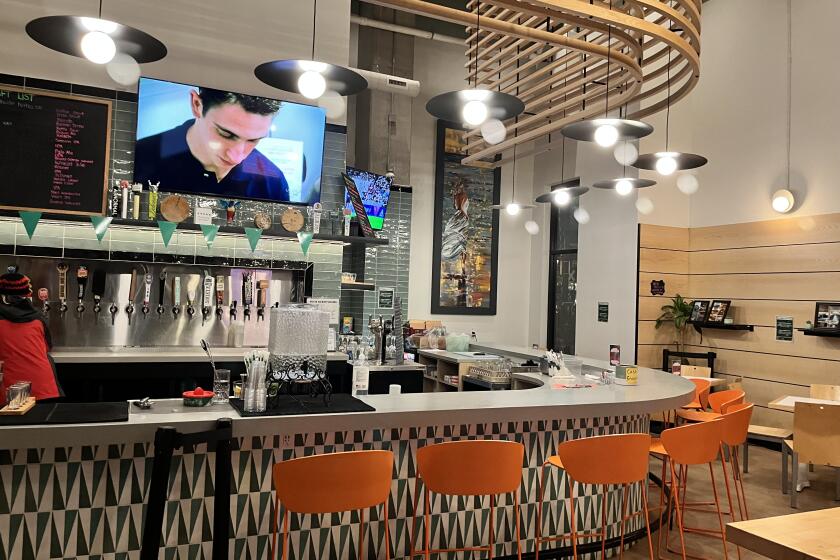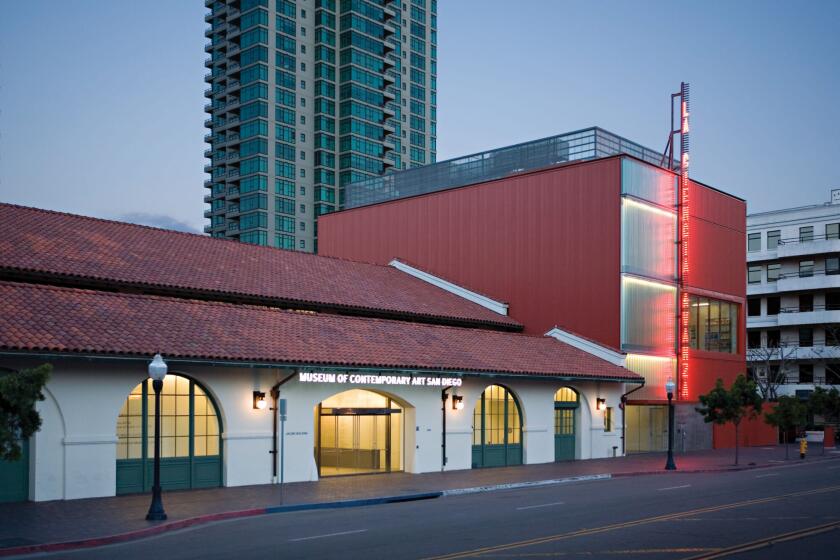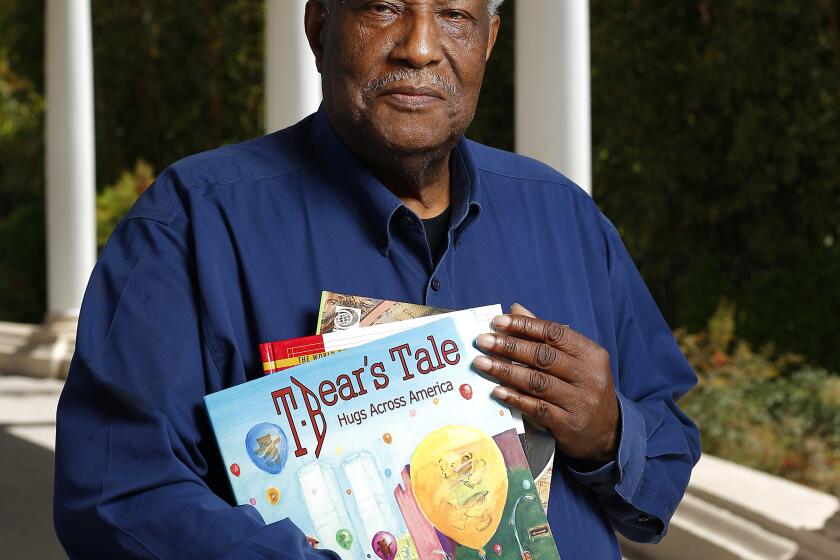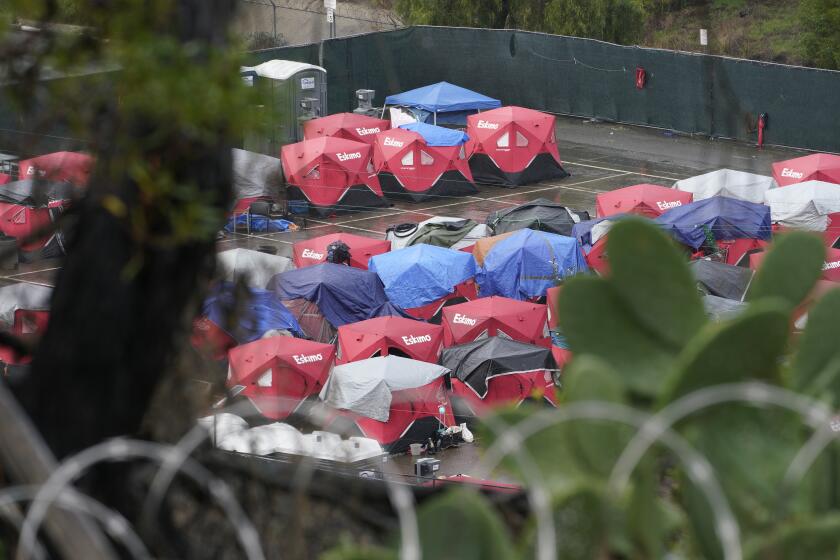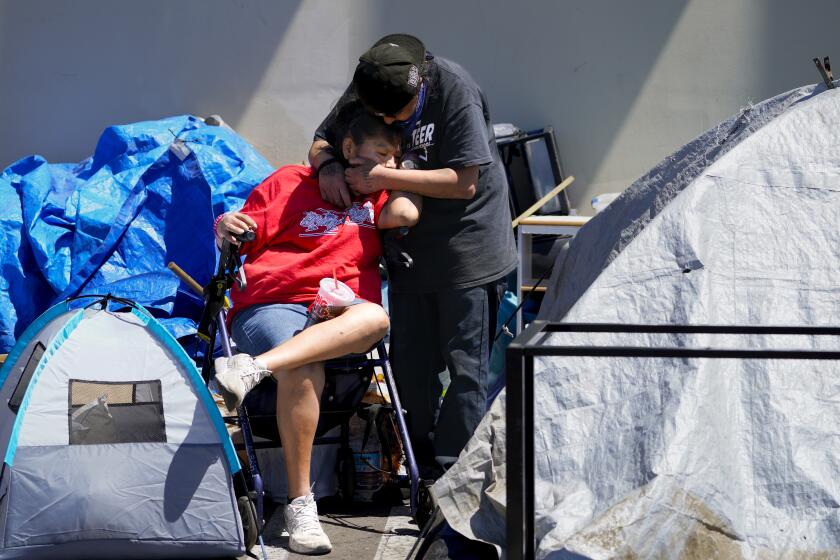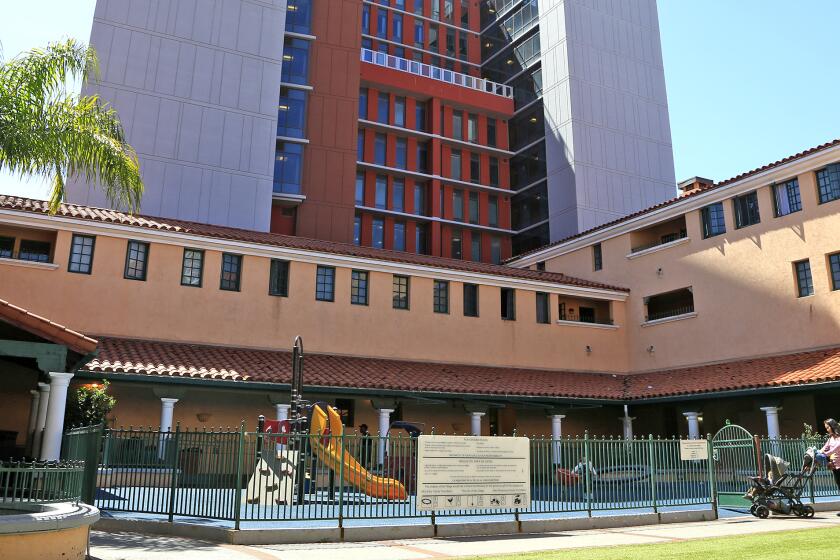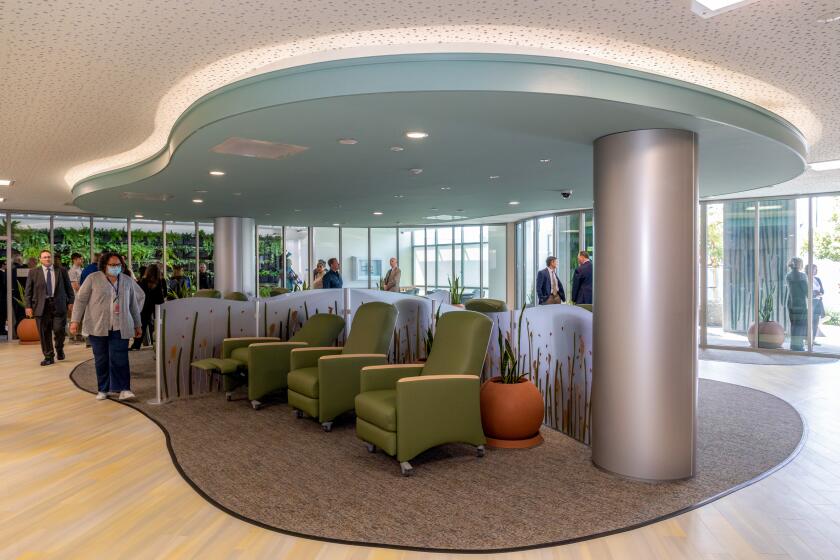Twins, 91, riding out quarantine together with daily pep rallies
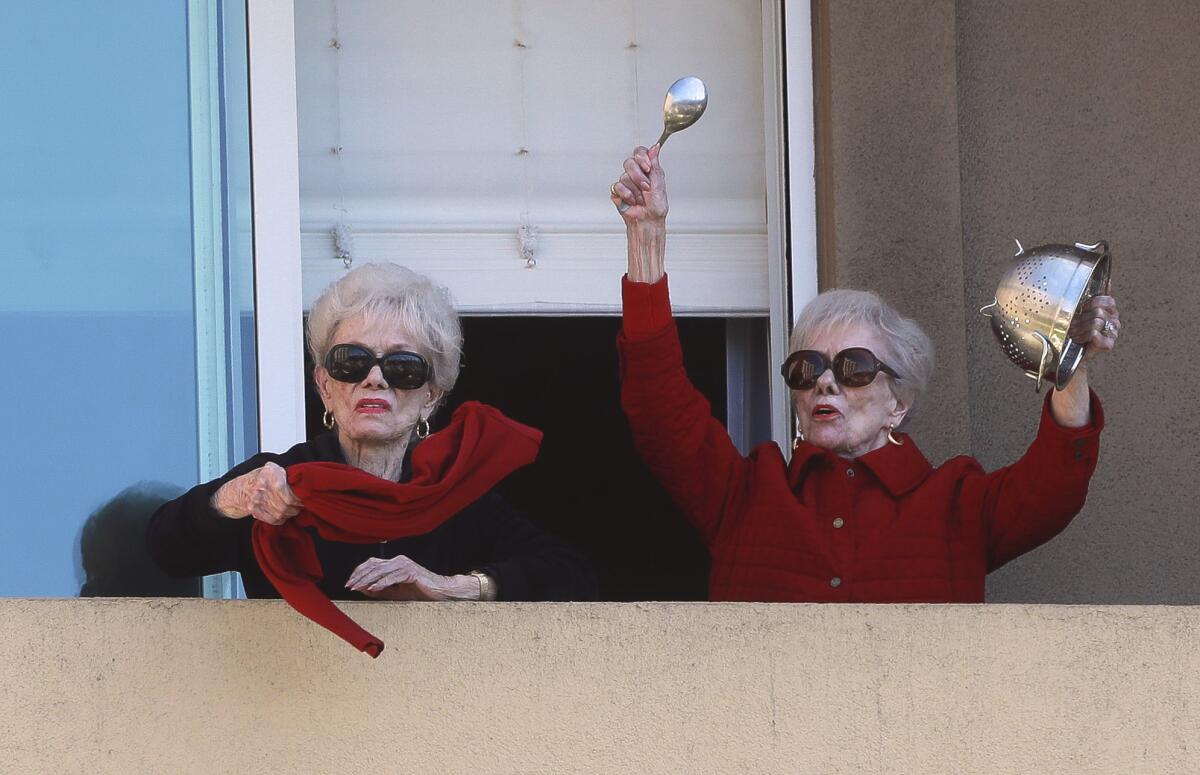
Experts say seniors benefit from retaining personal connections
For two weeks now, Jackie Voskamp and Joyce Kriesmer have barely left the apartment they share at the Vi at La Jolla Village senior complex. The 91-year-old identical twins are in a high-risk age group for COVID-19, so they have been in self-imposed lockdown.
The sisters have stopped taking their daily 1-mile outdoor walks and doing stair-climbing exercises. They’ve also given up shopping, bridge games, visits with their family and meals outside their apartment. Fortunately, the lifelong best friends have each other’s company in isolation and they relish the Vi’s recently launched 10-minute “pep rallies.”

Every weekday at 2:30 residents of The Vi at La Jolla Villages stand on their balconies to wave to each other, get a little exercise, and sing together during a time when everyone is encouraged to stay at home.
At 2:30 p.m. each weekday, more than 100 residents head out to their balconies to join employees in the courtyard below in singalongs, exercises, cheers, sign-waving and general noise-making to let off steam, soak up some sunshine and get a bit of exercise.
“We come back into the apartment with a big smile on our faces every day,” said Joyce, who said she loves to “make a big racket” at the rallies by banging a metal bowl with a spoon. Her sister Jackie calls the events a “big shot in the arm” for the healing power they have.
“Joyce and I find it so uplifting,” Jackie said. “Maybe just being able to scream and sing and holler is good for the soul.”
According to the Centers for Disease Control and Prevention, older adults and people with chronic illnesses are twice as likely to suffer severe effects from an infection of COVID-19. As a result, sheltering in place, avoiding unnecessary physical contact with others and practicing social distancing of 6 feet of more is recommended.
But social distancing doesn’t have to mean cutting off social contact with loved ones. Staying in touch by telephone, FaceTime, email or letters is one of the most important ways that seniors can reduce loneliness, anxiety and uncertainty while sheltering in place, said Dr. Dilip Jeste, a geriatric neuropsychiatrist and Senior Associate Dean for Healthy Aging and Senior Care at UC San Diego’s medical school.
Jeste led a team of UC San Diego researchers in publishing a study in January on loneliness in senior housing communities. Published in the journal Aging and Mental Health, the study was based on 30 residents, ages 67 to 92, at an independent-living community in San Diego.
The researchers found 85 percent of the subjects have moderate to severe levels of loneliness, even though they are surrounded by other people and have access to many social and recreational activities. The purpose of the ongoing five-year study is to understand the factors that can cause loneliness, which can put sufferers at a higher risk for developing health issues such as dementia, depression, heart disease and premature death.
Although the study was published before the state’s shelter-in-place rules took effect, Jeste said his team has stayed in regular touch with the subjects and they have observed how the new quarantine restrictions have impacted their lives.
“Some people are taking it in stride. They say: ‘Worse things have happened to me and I’ll come out of this.’ But many people are pretty confused, anxious and panicky,” Jeste said.
A contributing factor to seniors’ anxiety right now, Jeste said, is the information is constantly changing on how COVID-19 is transmitted, its symptoms and the potential length of the outbreak. Usually, seniors can spend time with their loved ones for information, reassurance and comfort, but that lifeline has been cut.
To avoid loneliness, Jeste recommends seniors stay in touch regularly with their children, grandchildren and friends to share positive news and stories of hardships they’ve overcome in the past. He also recommends daily exercise, reading books and watching movies they love rather than binge-watching the news. And he encourages seniors to practice empathy and compassion for others because it enhances well-being for both the giver and the receiver.
“There’s this sense that older people are vulnerable, sick and needy, but that’s not true. They are strong mentally. They have so many strengths they hardly realize,” Jeste said.
Dr. Kenneth Roth, co-founder of San Diego Internal Medical Associates, said the senior patients he’s been meeting with via telemedicine appointments since March 18 have expressed problems with anxiety, fear, depression and insomnia.
“Patients really want to talk,” Roth said. “As a physician with a longstanding relationship with a lot of these patients, to see them, tell them they look healthy and give them the reassurance they need is very settling for them.”
Roth recommends that his patients exercise, get outdoors and talk to others about their worries. Also, to make extended home life healthier and less monotonous, he encourages patients to reinvent their daily routine to keep it fresh and avoid overindulging in alcohol or food.
At the Vi, common areas have been closed and all meals are delivered to residents’ doors, along with pages of puzzles and activities to pass the time. The staff also makes a daily health check-in call to all of the nearly 600 residents in the 21-story buildings.
So far, there have been no diagnosed cases at the Vi, but Jackie and Joyce say they’re not taking any chances. The only times they leave their apartment is to ride the elevator down from their fourth-floor apartment to pick up their mail or delivered groceries.
But not all of the residents at the Vi are strictly adhering to the shelter-in-place rules. Jackie and Joyce said that many fellow residents have the mindset that they’re not afraid of coronavirus because they survived the Great Depression, wars and past epidemics.
“We’re not all that worried, either,” Jackie said. “At our age we’re living on borrowed time.”
Jackie and Joyce were born seven minutes apart on March 1, 1929, in Los Angeles. Nine years later, their dad, Roy Haug, landed a high-paying job ($209 a month) drilling oil wells near Dhahran, Saudi Arabia, for the company that would become Saudi Aramco. The twins, their older brother and mother stayed behind in Central California. When World War II erupted, Haug was sent home and after the war, he returned to Dhahran with his family.
The twins arrived in Saudi Arabia just after they finished high school. With so many well-educated engineers flooding into the fast-growing oil town, the sisters — who worked in the town’s library — soon met their future husbands.
In 1949, Jackie married George Larsen. They had two children and spent 27 years in Saudi Arabia plus three more in Nigeria and Beirut. After Larsen passed away, she married Raymond Voskamp. They lived in Vista for 19 years until Raymond died three years ago.
Joyce married John Kriesmer in 1951. They had three children and spent 35 years in Saudi Arabia before returning to the United States. From 1998 to 2011, they lived in Escondido and then moved to Rancho Bernardo’s Remington Club retirement community, where John passed away in 2013.
In 2017, the widowed siblings decided to move in together at the Vi.
“When we signed up, Joyce said, ‘Well, we came into this world together so we may as well stick it out and go out together,’” Jackie said.
To pass the time while in quarantine, the twins say they have been reading the newspaper and books, cleaning out cupboards, arranging photo albums, phoning friends and playing a card game known as Spite and Malice. Both sisters said the time goes quickly when you’re passing it with the person you’re closest to in the world.
“We’ve just had a lifetime of friendship that surpasses being sisters,” Joyce said. “It has been a beautiful relationship and it’s only gotten stronger since we became housemates.”
Top headlines by email, weekday mornings
Get top headlines from the Union-Tribune in your inbox weekday mornings, including top news, local, sports, business, entertainment and opinion.
You may occasionally receive promotional content from the San Diego Union-Tribune.
